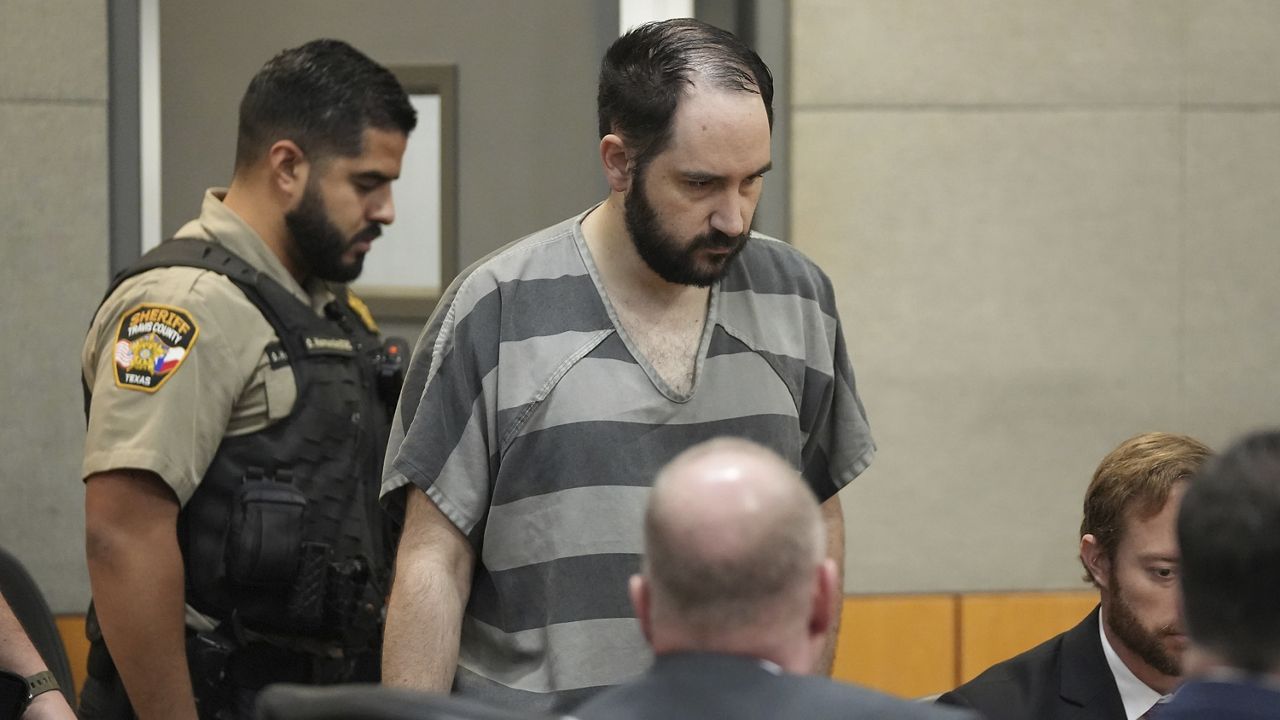AUSTIN, Texas — In issuing a full pardon to a former Army sergeant convicted of murder in the shooting death of an armed Black Lives Matter protester, Republican Texas Gov. Greg Abbott pushed a limited executive power to its absolute limit to get a desired outcome in a politically charged case.
Abbott’s pardon this week of Daniel Perry, who killed Air Force veteran Garrett Foster at an Austin demonstration in 2020, satisfied prominent conservatives who had demanded Perry’s release and outraged prosecutors and the victim’s family. To critics, Abbott’s rush to wipe away the conviction also raised questions about how a governor might try to overturn a jury’s verdict in the future.
“He has declared that Texans who hold political views that are different from his and different from those in power can be killed in this state with impunity,” said Whitney Mitchell, Foster’s girlfriend who was with him at the protest when he was killed.
Texas law limits a governor’s power to issue pardons. It can be done only with a recommendation of the governor-appointed Board of Pardons and Paroles. Abbott, a three-term governor, has used his pardon authority sparingly over the past decade, typically granting only a handful every year for low-level offenses.
Perry’s case was far different from the seriousness of the crime to the politics involved.
Foster was killed amid the widespread demonstrations against police killings and racial injustice that followed the killing of George Floyd, a Black man, by a white Minneapolis police officer. Perry’s conviction in 2023 prompted immediate calls from state and national conservatives for a pardon for the off-duty soldier who claimed self-defense.
Abbott’s response was just as quick. Even before Perry was sentenced, the governor criticized the jury that convicted him and demanded the parole board conduct a “swift” review of the case.
The governor also left no doubt about his expected result. “I look forward to approving (a pardon) as soon as it hits my desk,” Abbott posted on social media.
The public release of Perry’s social media history and text messages just days later did not change Abbott’s determination. Prosecutors used Perry’s own words — including comparing Black Lives Matter protests to animals at a zoo — to portray him as a racist who may commit violence again.
When trial Judge Clifford Brown sentenced Perry to 25 years in prison, he didn’t mention Abbott’s call for a pardon, but said from the bench that the verdict “deserves our honor and it deserves to be respected.”
Geoffrey Corn, chair of criminal law at the Texas Tech University Law School, called Abbott’s early push for a pardon, criticism of the jury and partisan attacks on the elected Democratic district attorney who oversaw the case a blow to the public’s confidence in the judicial system.
“It’s almost on the verge of catastrophic,” Corn said. “We’re telling people that when somebody is tried in a jurisdiction that is predominantly Democratic and you’re a Republican, the result can’t be valid? And vice versa?”
Perry, who is white, was stationed at Fort Hood, about 70 miles (110 kilometers) north of Austin, when the shooting happened. He was working as a ride-share driver and had just dropped off a customer when he turned onto a street filled with protesters. Foster, a 28-year-old white Air Force veteran, was legally carrying an AK-47 rifle.
Perry claimed he was trying to drive past the crowd and fired his pistol when Foster pointed a rifle at him. Witnesses testified they did not see Foster raise his weapon. Prosecutors argued that Perry could have driven away without shooting.
“Texas has one of the strongest ‘Stand Your Ground’ laws of self-defense that cannot be nullified by a jury or a progressive district attorney,” Abbott said in his pardon statement.
Yet David Kwok, director of the Criminal Justice Institute at the University of Houston Law Center, called jury nullification an important concept in justice.
“That is the power of the jury to push back against the force of government,” Kwok said.
Abbott had a long career in law before he was governor. He was an attorney and state district judge before he was appointed to the state Supreme Court, which decides civil cases. He then was elected state Attorney General and served three terms.
As governor, Abbott for years leaned into his legal and judicial experience when making political decisions, and was often criticized for being too deliberate and slow, said Cal Jillson, political science professor at Southern Methodist University.
“Abbott has changed a great deal over his 10 years,” as governor, Jillson said. “He has become much less judicial and much more political.”



